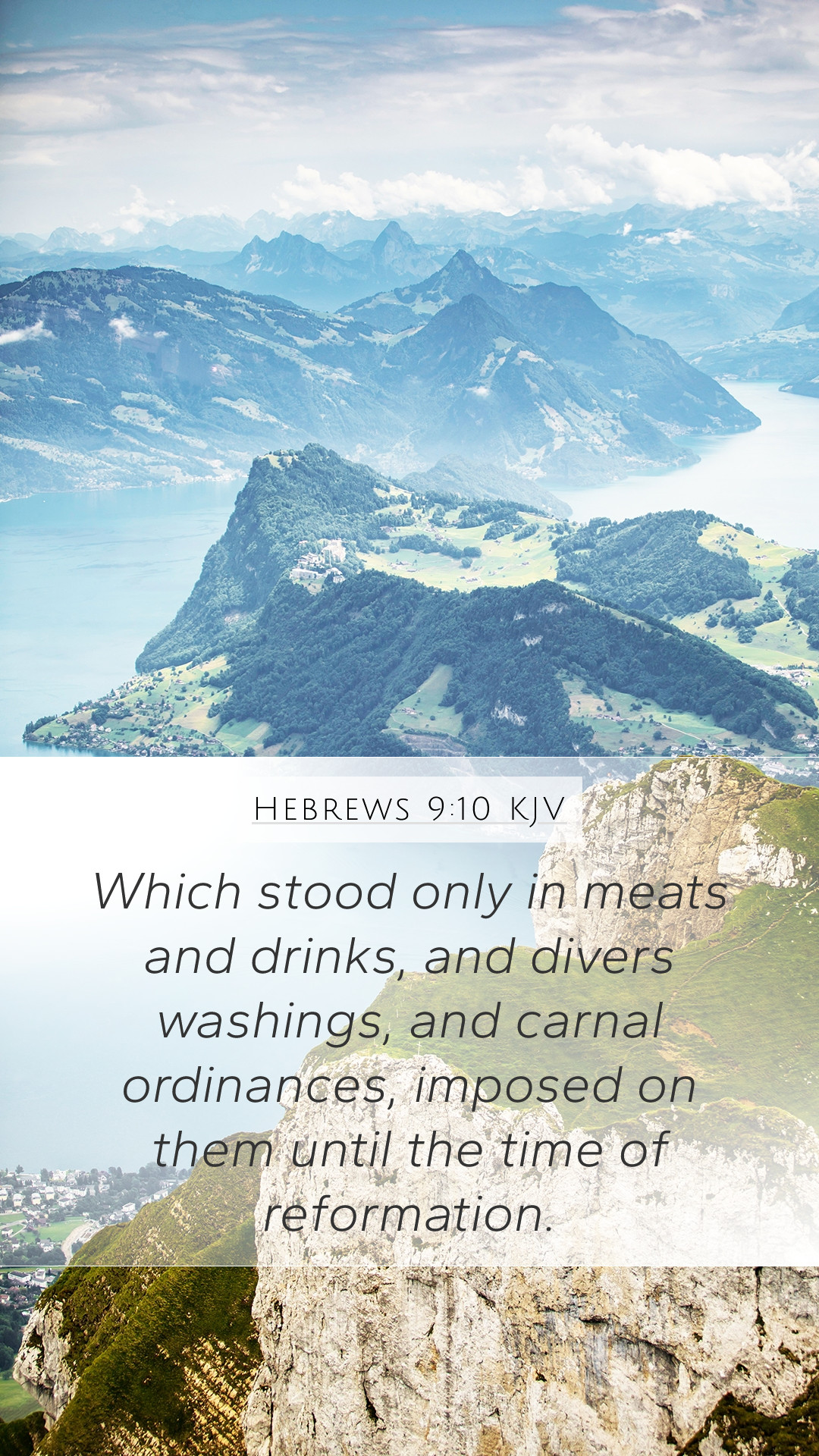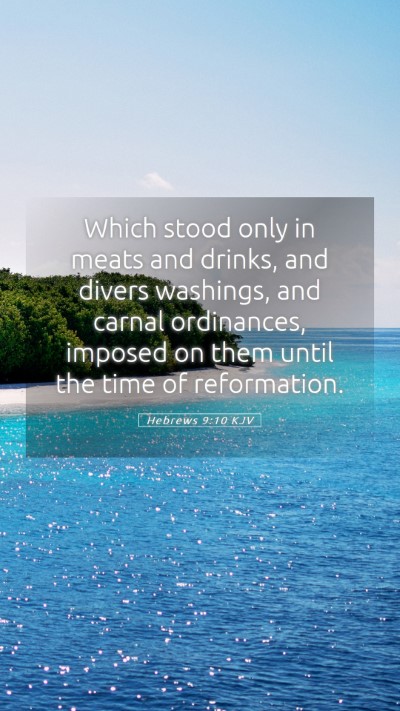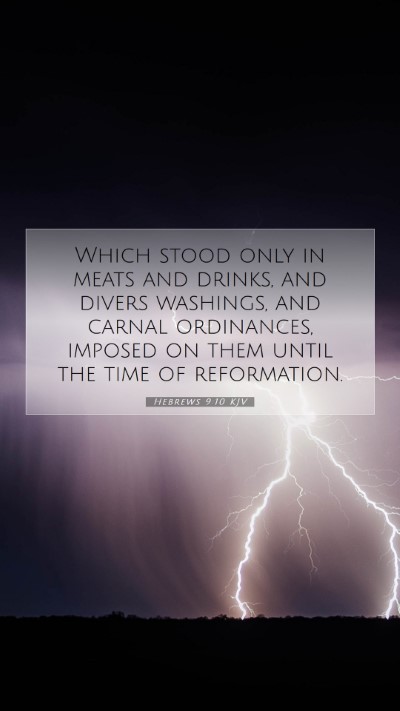Bible Verse Meaning: Hebrews 9:10
Verse Reference: Hebrews 9:10 - "Which stood only in meats and drinks, and divers washings, and carnal ordinances, imposed on them until the time of reformation."
Overview and Context
This verse is part of the Epistle to the Hebrews, which aims to elevate the person and work of Christ above the old covenant practices. The author highlights the limitations of the Levitical priesthood and the ceremonial laws that governed ancient Israel. These rituals served a purpose but were ultimately temporary and pointed towards a greater fulfillment that had yet to come.
Verse Analysis
Significance of Meats and Drinks: The author refers to the offerings of food and drink that were part of the Jewish sacrificial system. These were not substantive in themselves for atoning sin but served as a reminder of sin and the need for purification.
Various Washings: This part refers to ceremonial washings that were demanded by the Law, which symbolized the need for physical and spiritual cleanliness before a holy God.
Carnal Ordinances: The term denotes the rules and regulations governing the sacrifices and worship practices of Israel. These were earthly in nature, focused on external actions rather than internal transformations.
Until the Time of Reformation: This phrase points to the coming of Jesus Christ, who would bring a new covenant and a reformed relationship between God and humanity. This 'reformation' signifies the transition from the old covenant of law to the new covenant of grace.
Commentary Insights
Matthew Henry's Commentary
Henry emphasizes that the Old Testament rituals were essential for instructing the people about holiness and sin, preparing them for the ultimate sacrifice that Jesus would provide. He notes that these ordinances were shadows of good things to come.
Albert Barnes' Notes
Barnes explains that the rituals outlined in the Mosaic law were inadequate for true redemption. He points out that these practices could not cleanse the conscience or reconcile humanity with God, thus necessitating Christ’s sacrifice.
Adam Clarke's Commentary
Clarke provides a historical perspective, noting that these ceremonial practices were seen as necessary until the establishment of Christ’s priesthood. He emphasizes the inadequacy of the old rituals compared to the all-sufficient work of Christ.
Bible Study Insights
When engaging in Bible study groups or online Bible study sessions, understanding Hebrews 9:10 can illuminate the transition from the old to the new covenant. It provides Bible study tools and Bible study lessons that highlight the significance of Jesus as the ultimate fulfillment of the law.
Additional Cross References
- Hebrews 10:1: "For the law, having a shadow of good things to come..."
- Romans 8:3: "For what the law could not do..."
- Galatians 3:24: "Therefore the law was our tutor to bring us to Christ..."
Conclusion
In summary, Hebrews 9:10 serves as a foundational verse in understanding the transition from the old covenant to the new. It illustrates the insufficiency of the old rituals and points powerfully towards the reformation brought by Christ. For those seeking Bible verse interpretations or an understanding of Scripture, this verse highlights the significance of grace and the new covenant established by Jesus' sacrifice.


